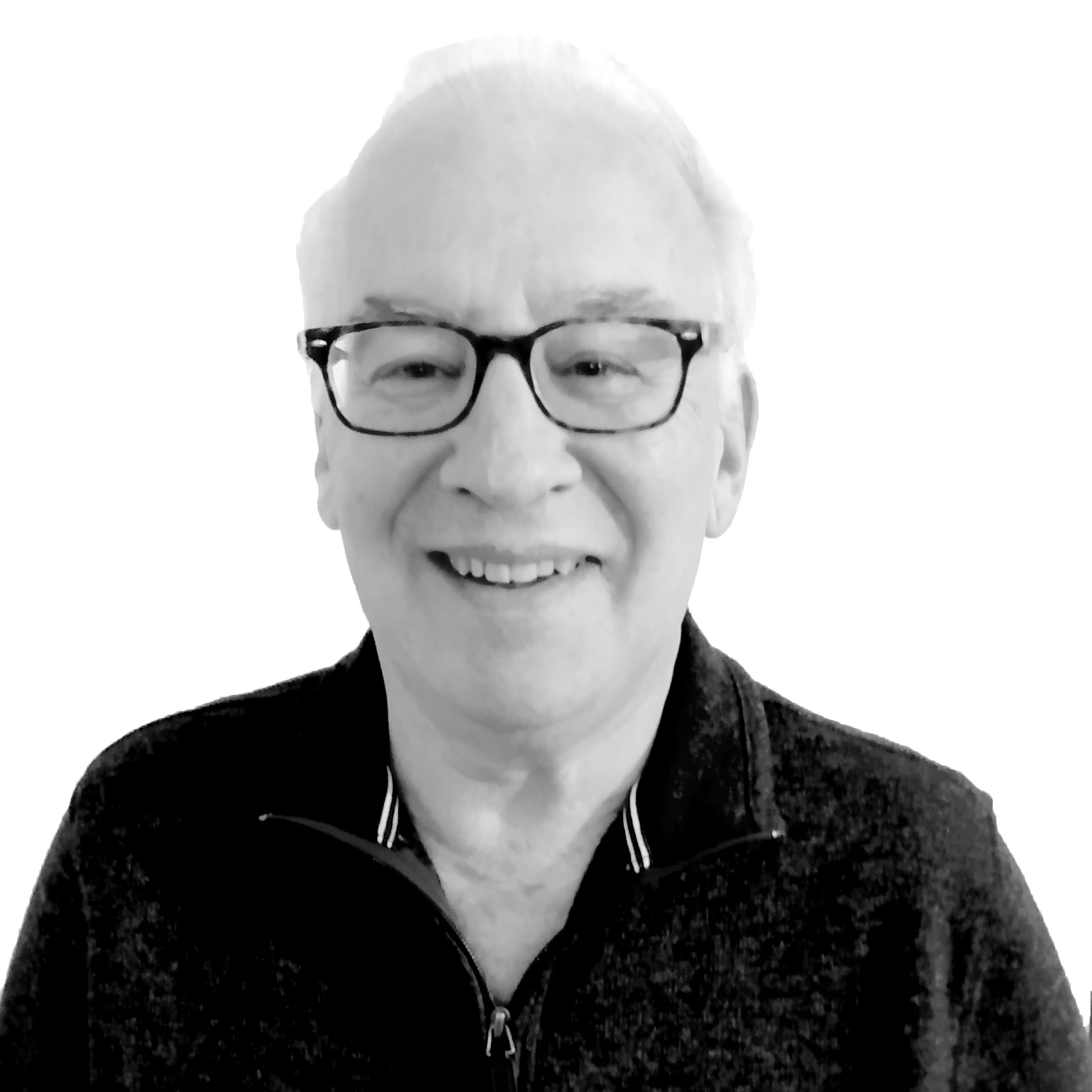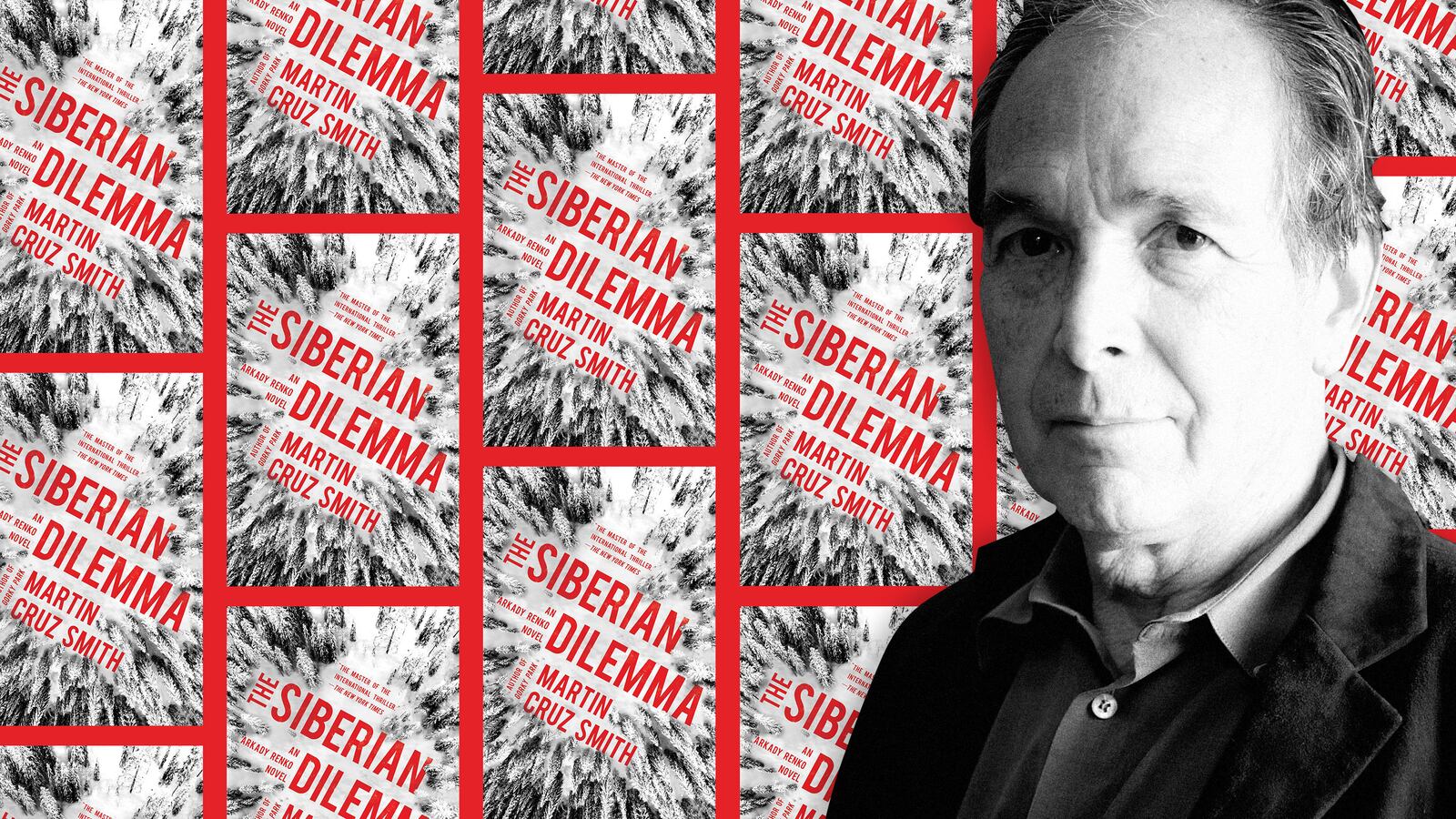Moscow was a dreary and depressing place in the ’70s. Streets were dirty and in need of repair. There was a scarcity of goods in the stores, whose windows were often thick with dirt. The city was crime-ridden, and prostitutes not only solicited on highways and in subways but roamed hotel corridors scratching at doors to gain attention. And everywhere, people who passed you on the street never smiled.
But for one young American reporter on his first visit to the country in 1973, this bleakness had an upside. Martin Cruz Smith was in country to report a story about how an American cop shows a Russian investigator how to solve a crime. But when he got to Moscow, “my eyes were opened,” says Smith today. “Why not allow a Russian detective to solve the mystery? I find it much more interesting to have a Russian character lead the way.”
Eight years later Gorky Park, a crime novel by Smith featuring a Russian detective named Arkady Renko who is tasked with solving the murders of three people whose bodies were found in the eponymous location of the title, debuted at #2 on The New York Times bestseller list. The book became a huge bestseller, was adapted into a 1983 film starring William Hurt and Lee Marvin, and jump-started a crime franchise that has now lasted nearly 40 years, and, with the publication this month of The Siberian Dilemma, encompasses nine critically acclaimed and bestselling novels.
“I think Gorky Park was such an instant success because the idea of a Russian hero was new and intriguing to the reader,” says Smith, who already had a relatively successful career and had been nominated for two Edgar awards prior to the release of the Renko novel. “Actually, I wasn’t surprised because I knew what I had. The book had wings.”
The Siberian Dilemma—a reference to a situation in which there are no good choices—takes place in contemporary Russia, the Vladimir Putin world of kleptocracy, corrupt oligarchs, crusading journalists in danger for their lives, and fights over natural resources like oil. In the book Renko, whom Smith describes as “a fool for love,” travels to Siberia to find his lover Tatiana Petrovna, an investigative journalist who has been assigned to write a profile of Mikhail Kuznetsov, a dissident oligarch who wants to take on endemic Russian corruption. Tatiana has disappeared while on assignment, and while searching for her, Renko discovers a hot mess of criminality that involves murder, shadowy Russian political figures, Chechens, and frigid, deadly weather.
The book, like all Renko mysteries, is fast-paced, well researched, and atmospheric. Smith has been to Russia seven times, the latest trip three years ago, and knows the turf; “Smith does his usual superior job of blending plot and setting,” Publishers Weekly said in its review. Plus, The Siberian Dilemma is particularly relevant, since two of the main characters are based on real people who have made major international headlines.
“In every novel I’ve written, there are counterparts to real people, but none as much as in The Siberian Dilemma,” Smith told The Daily Beast. “The character Mikhail Kuznetsov is inspired by the famous oligarch Mikhail Khodorkovsky, a political hero who ran for office in Irkutsk [one of Siberia’s largest cities]. Through him, Arkady is able to reflect on his homeland, oligarchs, and Russian politics.
“Tatiana is based on the investigative journalist Anna Politkovskaya, who was arrested in 1996 for speaking out against the government during the Chechen war [Politkovskaya was murdered in 2006]. In The Siberian Dilemma, Tatiana is threatened because she is determined to investigate the oligarchs with ties to the government.”
Over the years, Smith has created an enduring character in Renko, the son of a Stalin-loving Red Army general. Renko is a man wary of Soviet corruption who tries his best to remain honest in a society that does not necessarily appreciate that quality. “He is older and grayer” in the current novel, says Smith, “but no wiser. I don’t think an interrogator bucking the system could last as long as he has, but every so often I’ll pick up a newspaper and read the account of a man or woman who, against all odds, has refused to capitulate to the Kremlin and lived to tell his or her story.”
Like his creation, Smith has been around long enough to see the changes that the fall of Communism have brought to Russia. Thanks to capitalism, it’s as if a glittering overlay has been laid on top of a festering sore. “Today, while government remains corrupt and repressive, Moscow has become a golden city; it practically sparkles,” says Smith. “Stylishly dressed men and women sit in sidewalk cafes and elegant restaurants. Sleek Mercedes can barely move through crowded streets. Looks, however, can be deceiving. Moscow and St. Petersburg are showplaces but, as people say, ‘There is Moscow and St. Petersburg, and then there is Russia.’”
Smith emphasizes that if one looks closely enough, that “golden city” easily reveals its old self. He recounts how, while doing some research for his 2010 novel Three Stations, he visited Moscow’s Yaroslavsky Railroad Station with a police officer buddy. There, amid the drunks, druggies, hookers, and street gangs, they stumbled upon a mugging, but just walked around it and continued on. When Smith asked his buddy why he didn’t intervene, his response was, “Why? It isn’t worth the effort. They’ll just find somebody else to mug.”
Which might be the ultimate metaphor for Russia today: Who, or what, does it mug next? “[Russia wants its] own Wild West fueled by oil, and to this end will operate with stunning boldness to disrupt governments and other countries,” says Smith. “They will always attempt to fix elections here and abroad and will continue to expand their borders with aggression. And as long as Vladimir Putin is president, Russia will be a kleptocracy. He aspires to be the wealthiest man on earth and intends to remain in office as long as he can.”







